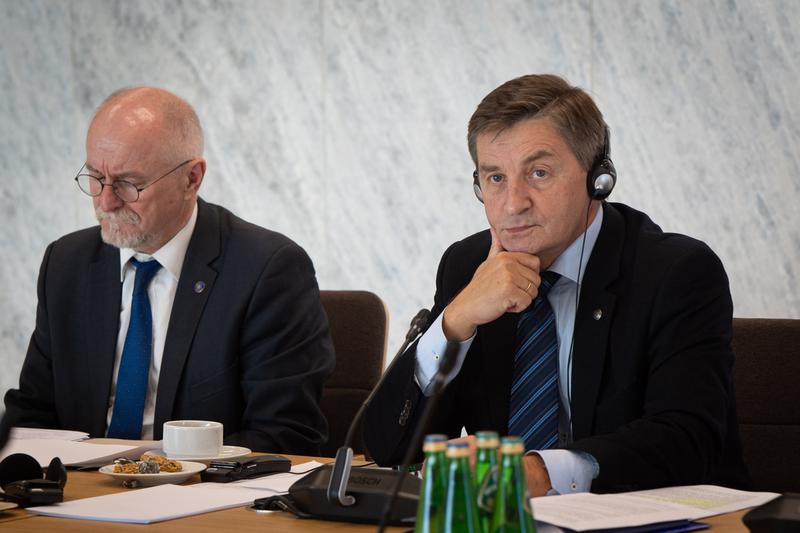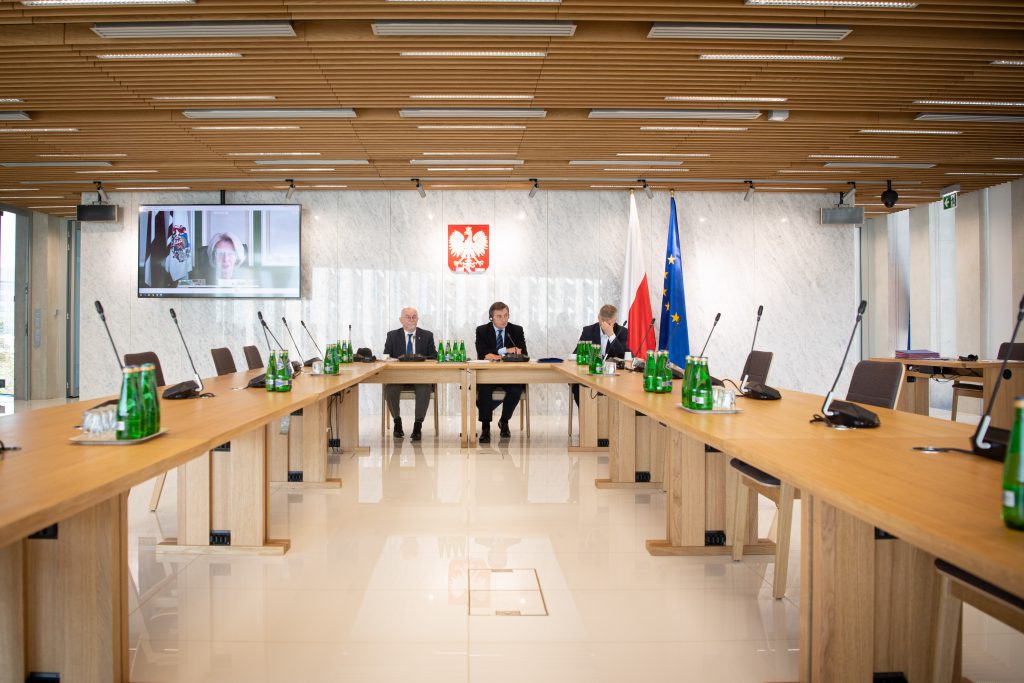The establishment of a new format of cooperation between the Chairpersons of the Committees on Foreign Affairs of the Baltic Trio (B3) and the Visegrad Group (V4) was the main issue of the meeting, which took place on October 6 in an online format. Its participants emphasized the common cultural, historical, economic and political ties, which are the natural foundation of cooperation in this part of Europe.
The session was opened by: Rihard Kols, Chairman of the Foreign Affairs Committee of the Saeima of the Republic of Latvia and Marek Kuchcinski, Chairman of the Foreign Affairs Committee of the Polish Sejm. Participants of the meeting were also welcomed by Inâra Műrniece, Speaker of Saeima of the Republic of Latvia, and Henn Pőlluaas, Speaker of Riigikogu (Parliament of Estonia).
The first part of the meeting was devoted to defining a new format of cooperation, establishing the most important common thematic areas and discussing the current situation in the region. The participants agreed that regional security, transatlantic cooperation, infrastructure development and efforts to increase investment in the region should be at the heart of the cooperation. Among the greatest challenges requiring a joint response, the following were identified among othersThe list of topical issues included the aggressive policy of the Russian Federation and the accompanying conflicts, the situation in Belarus and the measures taken to support civil liberties and freedoms there, European migration policy, and Chinese involvement in the region related to critical infrastructure. The COVID 19 pandemic and its impact on the economy is also included in the list of topical issues.
The second part of the discussion concerned the future of Europe. The panellists pointed to the ties that unite them and the values they profess and share as the foundation of cooperation and trust. The most important issues included among othersThe priorities include: a common position on Russian aggression and projects such as Nord Stream II, establishing a position on climate policy, efforts to maintain strong transatlantic ties, and the development of infrastructure, energy and digital technology connections. Stability and economic development of the region, meaning investments in innovative business projects, was also indicated as one of the priorities.
An issue that found a separate place in the discussion was the question of parliamentary diplomacy and its possibilities and importance for the construction of international relations. It was noted that its role in the region has been growing steadily over the past few years, reaching a level accepted throughout the democratic world. The thesis that parliamentary diplomacy plays a special role in creating and influencing public opinion was also presented. The possibility of joint initiatives at the parliamentary level was also pointed out.
Concluding the debate, the participants emphasized a very similar assessment of the international situation, an indication of similar challenges and threats, and a wealth of topics for future meetings. They also accepted the idea of introducing cyclical meetings in the proposed format, to be held twice a year. It was agreed that the next meeting will be organized by the Polish side in February 2021, in connection with the 30th anniversary of the Visegrad Group.
Panelists of the first meeting of the Chairpersons of Foreign Affairs Committees in the formula B3 + V4 were: Ondřej Veselý and Pavel Fischer - Czech Republic, Enn Eesmaa - Estonia, Zsolt Németh - Hungary, Rihards Kols - Latvia, Marek Kuchciński and Bogdan Klich - Poland, Juraj Blanár - Slovakia, as well as Zbigniew Rau - Minister of Foreign Affairs of Poland and Edgars Rinkēvičs - Minister of Foreign Affairs of Latvia.
CIS text
Photo: Aleksander Zielinski




